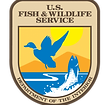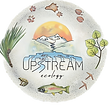

01
When:
October 8th - 11th, 2025
03
What:
A 4 day, 3 night training.
Learn from PBR experts!
02
Where:
Humboldt-Toiyabe NF
near Markleeville, CA, West
Fork Carson River
04
Who:
California Process Based Restoration Network
Join us for 4 days (3 nights) to learn the most up to date theory and practices in Process Based Restoration from experts in the field! Morning coffee and evening meals are provided, and it is a great way to increase your understanding of PBR and make connections with others involved in this work.
We're thrilled to offer this training for its fourth year! To ensure we continue spreading PBR knowledge far and wide, we're especially encouraging those who haven't yet experienced this workshop to register first. If you've attended more than 1 workshop in the past, we ask you to wait to register until after September 1st, 2025. We'll be delighted to have you return. Your generosity in making space for others truly embodies the collaborative spirit of our program. Thank you for helping us create an inclusive learning environment for newcomers!
Members of Native American Tribes and their employees are invited free of charge, though space is limited. If you are interested, please contact Paige Tomson at events@calpbr.org
TRAINING DESCRIPTION AND GOALS
This course provides background and current theory of Process-Based Restoration principles while also teaching hands-on building techniques in the field. We examine pre-project site evaluation and design, permitting, implementation and evaluation of completed projects. The course includes discussions of philosophies, restoration objectives, lessons learned, and an introduction to the vibrant culture of the CalPBR network.
LEARNING OBJECTIVES
Following the completion of this course, a participant should be able to:
-
Understand basic fluvial processes of degraded and restored meadow systems at the landscape scale, and the role of beavers as ecosystem engineers.
-
Describe the design criteria for Process Based Restoration.
-
Identify source problems (human infrastructure constraints on fluvial space and processes).
-
Discuss form-based construction practices, their long-term impacts, and the logic behind choosing process-based restoration, including reversibility.
-
Build beaver dam analogs composed of locally sourced material using a variety of building techniques
-
Develop critical thinking skills needed to evaluate the success of process-based restoration projects, and learn how to work with nature to heal nature.
-
Identify, propose and design a process-based restoration project.
-
Understand permitting pathways and funding resources for process-based restoration projects.
TRAINING STRUCTURE
the training is taught in three parts:
-
Pre-Training On-line Recorded Lectures: On-line recorded lectures we recommend watching prior to attending the workshop.
-
4 Day Field Training: A hands-on learning experience where we build connections to the floodplain (and in the network!) while helping to complete an ambitious, large-scale restoration project.
-
Post-Training Online Recorded Lectures: Online lectures to watch post field training that will reinforce lessons and topics addressed.
Please use the pre-training resources to get the most out of our time in the field, as they provide important foundational concepts and context. The post-training materials will provide you with a learning resource after the training is over.

TRAINING CONTENT
We do ask that you attend the entire traininng as each session and concept builds on the next, and single pieces taken in isolation will generate unpredictable results.
Pre-Training Lectures:
Pre-recorded lectures on topics related to understanding basic concepts of riverscape hydrology and the science and philosophy of Process Based Restoration. These will be available soon in the attendee portal.
Training Days 1-4 - October 8th - 11th, 2025
-
Explain Process Based Restoration design criteria for restoring fluvial systems, drawing from a knowledge and talent pool spanning many decades.
-
Explain core concepts in meadow restoration and how to evaluate restoration success.
-
Tour worksite and meadow
-
Gain understanding about the history of land development in California and its relationship to issues currently faced.
-
Learn different building techniques and their appropriate application to a variety of applications and restoration goals.
Post-Training Lectures:
Understand permitting pathways for process-based restoration and provide additional design tools.
INSTRUCTORS & GUIDANCE
The training and materials offered in this training are a result of the combined expertise of professionals in the CalPBR network and beyond.
Instruction provided by the following individuals:
Karen Pope, Carrie Monohan, Kate Lundquist, Brock Dolman, Garrett Costello, Kevin Swift, Damion Ciotti, Shelli Wingo, Sabra Purdy, Adam Cummings, Nick Graham, Jordan Vermillion and Matt Berry.
Additional field guidance provided by crew leaders with years of experience from the following companies:
Symbiotic Restoration, Swift Water Design, Upstream Ecology, Annabranch Solutions and Nature’s Engineers.
Please note that the course content may change depending on site conditions, access and other unforeseen logistical issues, so please be prepared to be flexible—it’s a process, after all.

EQUIPMENT REQUIREMENTS
Registrants will be sent a more comprehensive list prior to the event.
-
You will require the ability to work in up to waist-deep water and get wet and muddy. Spending the training on the bank will greatly reduce your uptake of critical concepts, and many of them are entirely physical.
-
Waders, muck boots, wading boots and synthetic hiking boots that can get wet are all options. Leather boots and gloves will turn to soup, so bring simple chore or gardening gloves with rubber palms and fabric backs. Protective eyewear is a must, there’s nothing worse than literally getting poked in the eye with a sharp stick. This is what we consider acceptable gear, if you make a different choice it is at your own risk.
-
Camp gear: You will be camping for 3 nights in October. Bring your preferred camp setup, and be aware that snow is a possibility at this altitude.
-
Food/Water - You will be responsible for your morning and midday meals. Morning coffee and evening meals will be provided, with both carnivore and vegan options each night. Many common dietary requests can be accommodated, though we may not be able to avoid things such as nut allergies. You will be asked upon registration to indicate what your specific needs are, and we will contact you directly if necessary.
INCLUSION
We want this course to be as accessible to as many different people as possible, and we are happy to make all reasonable accommodations. If you’d like any adjustments, please talk to us as early as possible so we can plan and help out.
PROTOCOL
Practice professional conduct. Promptness, general demeanor, and your ability to interact positively with colleagues, instructors, and other practitioners will be valued throughout this program. As you adopt this emerging professional role, keep in mind that you are also becoming an ambassador to our profession.
REFUND POLICY:
Full Refund (100%): Cancellations made by September 24th, 2025 (2 weeks prior to the training)
No Refund: Cancellations made after September 24th, 2025 (less than 14 days prior)
CANCELLATION POLICY:
Emergencies = Full Refund
Life happens. If you have a medical emergency, family death, jury duty, natural disaster, or other unavoidable situation, you'll get a full refund
QUESTIONS AND CONTACT INFO:
Please contact Paige Tomson, Training Coordinator, with any specific questions. She can be reached by email at events@calpbr.org, or by phone at 303-901-1389.
We look forward to meeting you and sharing in this exciting training opportunity!!
The mission of the California Process Based Restoration (CalPBR) Network is to promote process-based restoration approaches that increase the capacity of degraded river and stream ecosystems to retain water, support biodiversity, create fire resiliency, and adapt to climate change. The network is a diverse collaborative of natural resource professionals with a shared mission to promote and advance
process-based restoration in California.




%20(1).png)